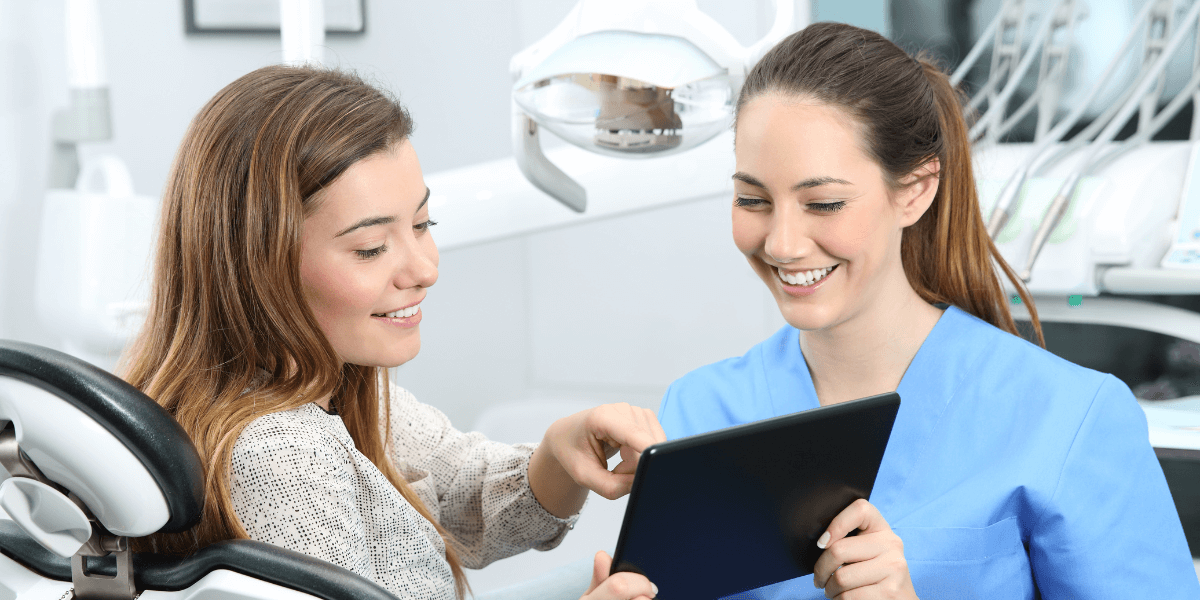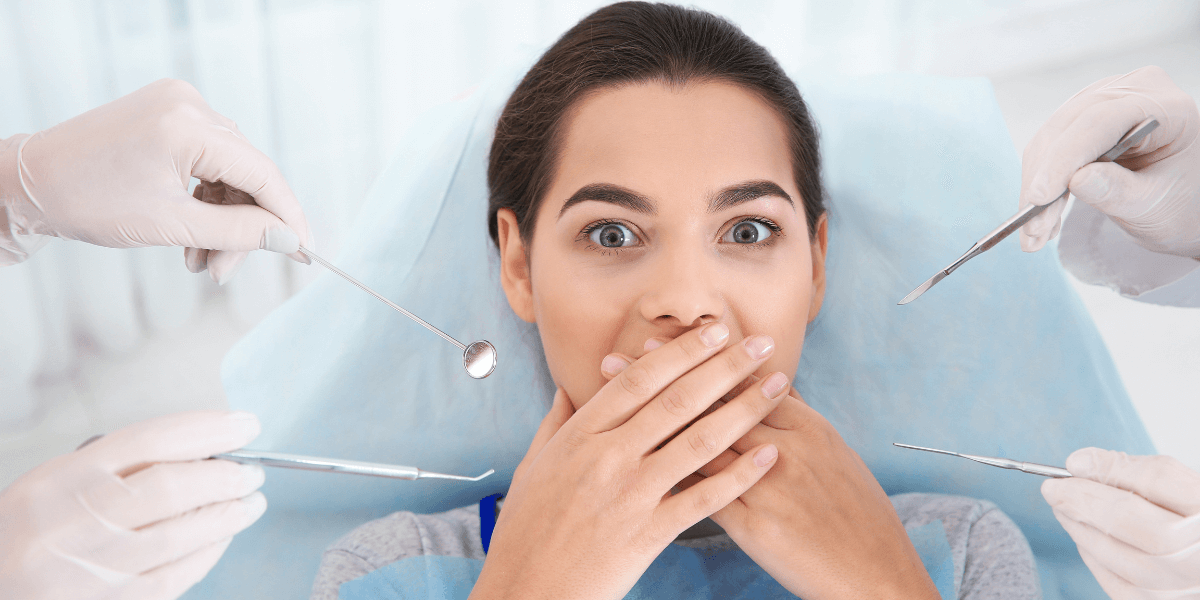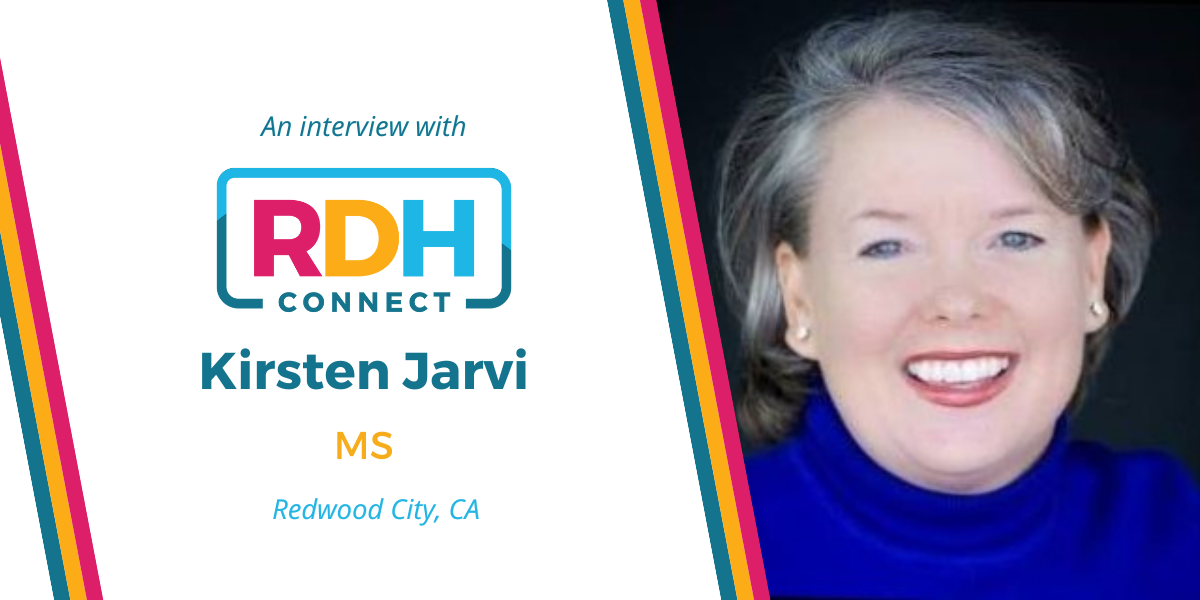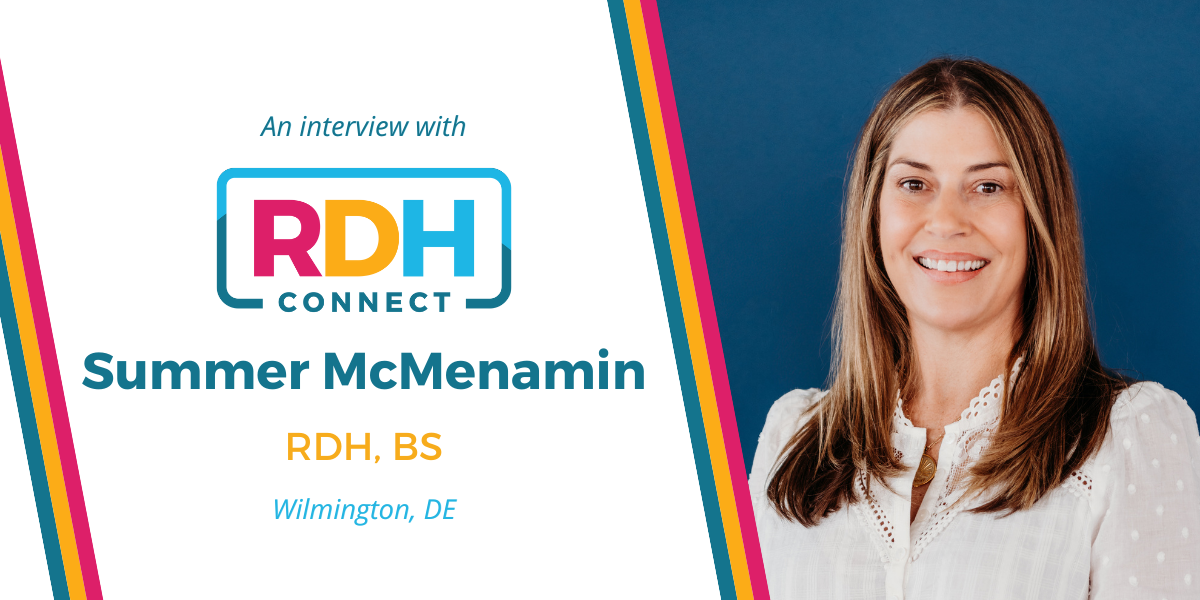
This dental hygienist’s first job after school left her feeling unprepared & inexperienced among her peers, but without the proper resources to learn. Find out how she recommends new grads navigate the early years of their career, to maximize their professional & personal success, now as a new grad coach herself.
Ten years ago, I graduated from dental hygiene school. Like most new graduates, I felt like I was on a pink cloud and rode that euphoric feeling as I entered private practice. I knew I had a wealth of knowledge to give and was eager to make a difference in the world. I was a strong student, both academically and clinically, and felt prepared to leave the close guidance of my professors and the sorority-like environment of my classmates. However, that quickly changed, and I fell from the cloud. My first dental hygiene job was maternity leave coverage. I would be the first one in the parking lot every morning, eager to get in there and review my patient charts for the day. It felt exhilarating to put all my newly acquired knowledge into practice! “Here we go,” I thought. As the days went on, I would begin to experience comments such as, “Why is this taking you so long?”, “Is this your first time doing this?” and “Where is my regular hygienist?” I was not prepared for these questions, leaving me with incredible self-doubt.
As I continued working in this office, I quickly noticed things that were not aligned with what I was taught in school. For example, medical histories were over ten years old, patients were not required to wear safety glasses, and regular oral cancer screenings were non-existent. As a new grad, many of my questions were quickly shot down or ignored. I knew I wouldn’t be at this office for long, but the experience made me feel unprepared for what this so-called “real world” was all about. Would every office be like this? I would find myself sweating and panicking, unsure that I was even removing calculus. I often wondered, “Why isn’t the doctor giving me feedback?” and “Am I doing a good job?” In school, we receive feedback every step of the way, and while I once took this for granted, I longed to have that guidance back. One day, I even walked into the doctor’s office and asked, “So, how am I doing?” The doctor responded, “fine.” Unfortunately, this was not the confidence booster I was looking for, as I was already so deep in a hole with little confidence.
That temp position ended, and I wound up at an office where I would spend the next five years. On my first day, the doctor sat me in his office and told me anyone could learn the skill of scaling teeth. I questioned this statement, but I now have a much clearer understanding of the point he was trying to make. He continued, reiterating that it takes a true professional to develop rapport and trust with patients, effectively convey treatment and disease status, and receive the criticism and feedback necessary to grow into the role of a dental hygienist. He then told me that he would be hard on me, which would help me flourish in my skills and be more profitable in my career. Hard on me? What did this mean?
After receiving this speech, I put much pressure on myself to be the best. That pressure resulted in severe anxiety that left me dreading going to work. While making me a skilled hygienist, I was also subjected to intense criticism. I had difficulty reading radiographs and didn’t know how to look for the treatment needed, let alone discuss it with the patient. I struggled with time management and could not fathom how I was supposed to do a complete periodontal charting and discuss the findings with the patient on top of everything else without running late. And to make matters worse, my boss liked to embarrass me in front of my patient while pointing out my areas of weakness. So, tell me, who would teach me how to be better?
As I reflect on this time in my life, it reminds me of the approaches I coach my new graduates to take when looking for and working in their first hygiene job. I cannot change the hardships and conditions I faced as a recent grad, but I can advise and guide new graduates seeking my advice.
Firstly, pick your new boss wisely. As the demand for hygienists has sky-rocketed across the country, it gives a hygienist the power to choose the right office. I would advise new hygienists to think about the working relationship they would have with their new potential dentist. Can they see themselves working and interacting effectively with this person for the next couple of years? Think about the doctors’ management style and mentoring style. Finding an employer who fosters the continued learning necessary to advance your skills would be ideal. Some offices are enlisting a mentor for their recent grad either within the company or hiring someone from the outside. When hiring a coach, this person will take time to meet with you and help fine-tune your chairside skills. Ask yourself, “Can I be a respected and valued prevention specialist here?”.
Once a hygienist has gained employment at an office of their choosing, I recommend ongoing expectation/goal meetings with the doctor. It is essential to set aside time to meet with the doctor to discuss detailed expectations of you and them. Ask the doctor how they’d prefer the exams be run; this could include informing the doctor of suspicious lesions (either verbally or written) and asking the doctor if they’d like your advice or treatment concerns. I worked for a dentist who needed everything in writing before entering the operatory. This doctor would then proceed to do his exam and would not like me to contribute to the conversation, nor would my concerns be addressed. I found this office was not conducive to learning, and I only stayed there briefly. If you see the doctor treatment planning something that you didn’t notice, ask for clarification. An open communication line will help the doctor value your relationship more. Ask, “Dr. Tom, next time you treatment plan a restoration I didn’t notice, would you mind showing me what you see in the mouth or radiograph? I would love to know how to prepare the patient before you come into the room” Not only will the doctor value this statement, but it will also help with case acceptance going forward.
Lastly, ask your new boss to set aside time for feedback. “Dr. Tom, do you mind if we meet monthly to discuss my progress and growth?” Be prepared to receive positive and constructive feedback. Constructive feedback can be daunting sometimes but participating in these types of conversations will only facilitate reflection and growth, which will help you become the hygienist you want to be. In hygiene school, my professor told the class that it would take effort on our part not to be a “pick and polish” hygienist. If you desire to do more, then it is up to you to take your learning into your own hands. This is something I wish I had done with my boss.
Suppose you find yourself in a situation where the doctor does not value you as a partner-in-care, negatively criticizes you without any constructive feedback, does not seem to respect you, or is not open to fostering your growth, then it is time to reflect on whether this is the right office for you. Do not feel that you need to remain in a situation that is not meeting your core values.
Remember, there is support after graduation. You do not need to venture into the working world alone. Seek out mentorship and community. Learn from your peers and be the best version of yourself that you can! Remember, you are only at the beginning stages of a lifetime full of unimaginable opportunities!





